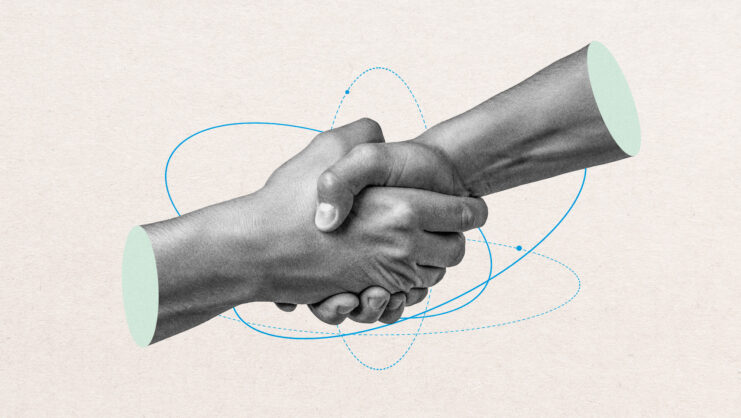Organizations and leaders have been emphasizing the need to cultivate gratitude in the workplace for quite some time but these days the effort is in full force. For example, the former CEO of Campbell Soup Company famously wrote 30,000 hand-written thank-you notes to his employees. Indra Nooyi, ex-CEO of Pepsi, went a step further and wrote thank-you notes to the parents of her employees. They were on to something because practicing gratitude in the workplace has been shown to increase engagement, improve behaviors, and foster ideas exchange and development within teams.
Overall, practicing gratitude makes a substantial positive impact on people’s mental health such as reducing anxiety and depression. Being on the receiving end of gratitude increases one’s felt social worth and positive mood and thus motivates prosocial behaviors, while expressing gratitude helps to build and maintain one’s social bonds with others.
Corporate interventions such as cultivating a gratitude culture have become especially relevant given the dismal statistics on workplace well-being. Loneliness caused by the workplace environment has become a veritable cause of concern for companies. According to Gallup’s State of Global Workplace Report, 85% of the employees reported being either not engaged at work or, even worse, actively disengaged. Even before this pandemic, the World Health Organization had declared workplace burnout an official medical condition with several employees clocking 60+ hours of work per week. In all of this, a few moments of feeling and expressing gratitude and appreciation for one another can do wonders.
Psychologists and life coaches attest to the positive effects of keeping a “gratitude journal,” in which one records and reflects on the positive things that happen to them. Studies have shown that this simple act of writing these things down yields better sleep, fewer physical illnesses, and more happiness. The practice has found its way into the workplace. A recent poll created by myself and IE Business School colleague Shike Li that we ran with 100 people on LinkedIn, found that approximately 40% of respondents were currently keeping gratitude journals that included aspects of their jobs as well.
Is writing such gratitude notes always beneficial? Li and I are currently looking into this and our research is pointing to the distinct possibility that the laudable act of counting one’s blessings can in fact, inadvertently, make us feel worse than before putting pen to paper (or fingers to keys.) This comes from a feeling of indebtedness and obligation to repay the person who is the source of gratitude. For example, imagine a colleague spends a whole weekend helping you with a project. Upon writing about this diligently in your gratitude journal, you might end up stressed and guilty about cutting into someone else’s free time and not having efficiently managed your own time. And there is now the dilemma of how to adequately repay the favor. As one respondent in our research noted about receiving some financial help, “I was eternally grateful for the help, but also somewhat embarrassed that I couldn’t take care of myself and had used my nest egg for trivial things.” As another respondent said, “I was initially happy that the work has been done, but then felt frustrated because it felt as if I couldn’t manage things on my own.”
Importantly, the beneficial outcomes associated with explicit expressions of gratitude are largely found in the western world, where people are used to exchanging such expressions. Cross-cultural research (from India, Korea, China, Iran, etc.) gives us very different evidence. In fact, articulating gratitude can be inappropriate in various seemingly-normal circumstances. For example, in some countries (e.g., India and China) there is an implicit belief that family and friends are expected to be kind to one another, and verbally saying “thank you” can actually be construed as offensive, even insulting because it violates the understood intimacy of relationships. Think of how a parent, upon receiving a thank you from a child, could feel as if their care was not expected from them in the first place.
Not only that, constantly exchanging gratitude can prime a transactional (quid pro quo) mindset, a tit for tat in which people seek appreciation and validation in exchange for their kindness. This, in turn, can damage the authenticity of relationships – which is contrary not only to the whole argument for cultivating gratitude but to the original act of kindness. As such, the beneficial effects of gratitude are not without boundaries and we should therefore be mindful in its practice. Here are some recommendations on how to cultivate and exchange gratitude in a meaningful and productive way:
- Aim for genuine—not forced—gratitude: If writing in your gratitude journal feels like a chore, chances are that it will soon become just another item on the to-do list and lose significance. When writing a journal, take the time to truly feel and appreciate the good things and people in life and don’t feel the need to catalog every little item of goodwill. Keep it personal and as private as appropriate to you, without any obligations to share with your partner, family, friends, or coworkers. Simply put, practicing gratitude is about being mindful of genuine feeling, when it comes, and not about tabulating experiences.
- Don’t over-indulge: If you express superfluous gratitude, you might end up sounding insincere. For example, working together on a joint project, if you express gratitude several times over the course of a project or with every single interaction, it could begin to feel inappropriate and a burden for the other team members. Worse, it might come across as if you are virtue-signaling. Keep it appropriate and maintain the spontaneity in it.
- Adapt to cultural barriers: For people in Western cultures, saying a “thank you” might be taken-for-granted as a daily necessity, but this is not the case all around the world. In a recently published paper, scholars found that in certain languages, there isn’t even a translation for “thank you.” As such, it is vital to be conscious of the culture from which whomever you are interacting with hails, so as to not unwittingly offend them with a well-intentioned but misplaced thank-you. Cultural sensitivity training on ways to navigate multicultural environments should incorporate these nuances of when gratitude is received easily vs. interpreted as an obligation to reciprocate, so that executives can determine the best ways to exchange and expect appreciation.
- Practice non-verbal cues of gratitude: The old saying, “show don’t tell,” plays a crucial role in expressing gratitude, especially if your colleagues are not accustomed to the verbal expression of “thank you.” Make an effort to express yourself with physical gestures and facial expressions.
Gratitude is a powerful tool to improve well-being, our own and that of others. However, it is not as straightforward as it seems. The complexities associated with feeling gratitude, with its expression and acceptance, as well as the embedded cultural differences, have the potential to yield misunderstandings. Before treating ‘thank you’ as a panacea and relying on surface-level gratitude to be the magic bullet to lift your life and your career, take a deeper look. A “thank you” is only as good as it is genuinely felt and meaningfully received.
© IE Insights.











